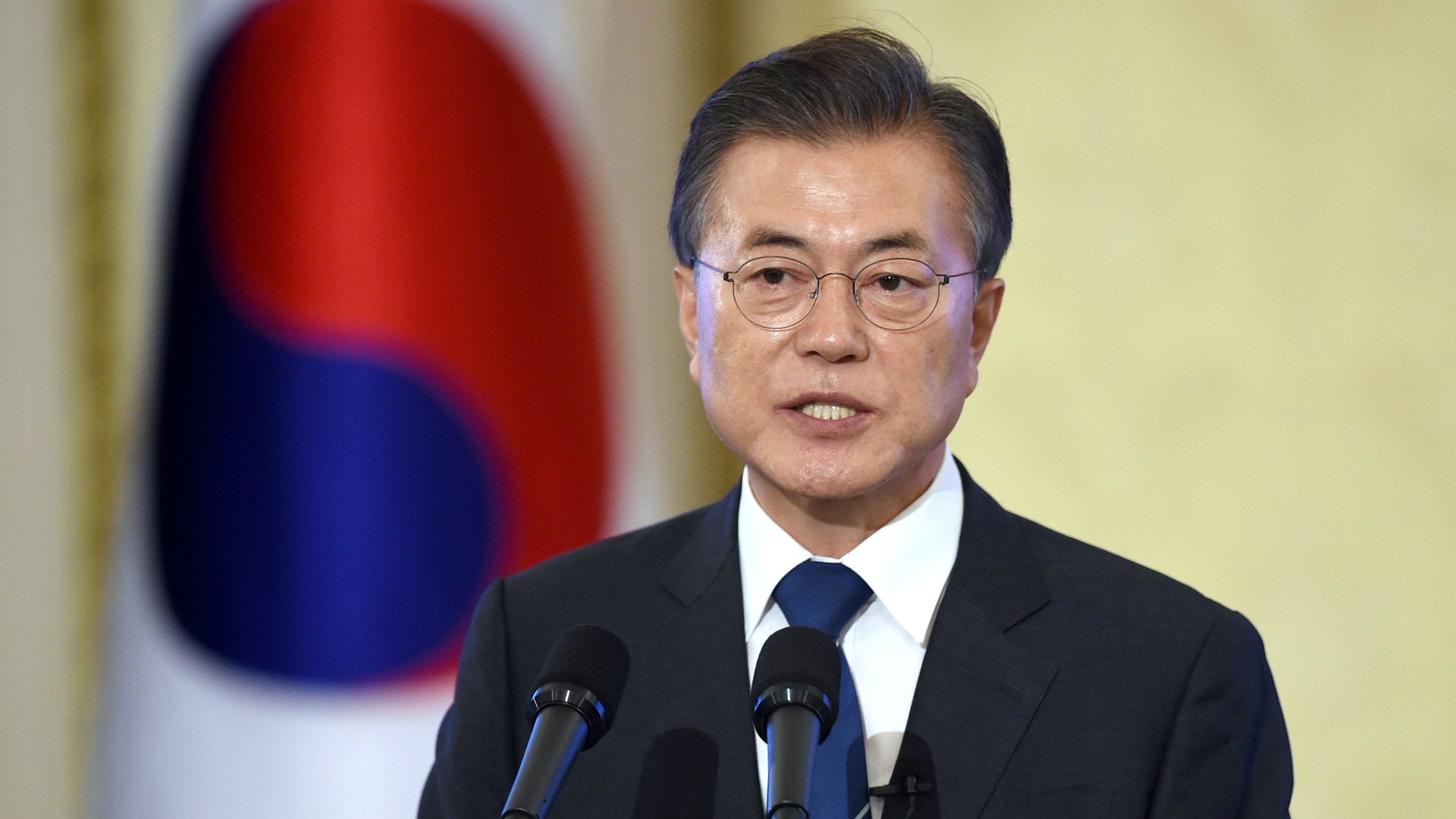Trump is picking the worst possible time to toss out a trade deal with South Korea
On Saturday (Sep. 2), reports surfaced that Donald Trump is considering withdrawing (paywall) from a landmark free-trade deal with South Korea. The timing of the news couldn’t have been worse. Just one day after, North Korea announced it had tested a hydrogen bomb that could be mounted on an intercontinental ballistic missile.


On Saturday (Sep. 2), reports surfaced that Donald Trump is considering withdrawing (paywall) from a landmark free-trade deal with South Korea. The timing of the news couldn’t have been worse. Just one day after, North Korea announced it had tested a hydrogen bomb that could be mounted on an intercontinental ballistic missile.
What was the free-trade agreement (FTA) and why is it controversial?
The FTA between the US and Korea is known as KORUS, and it was a long time in the making. Negotiations for the deal began during the Bush administration in 2007, and it finally went into implementation in 2012 under Barack Obama. As part of the agreement, the US and South Korea agreed to slash tariffs on approximately 95% (pdf) of consumer and industrial products, most notably automobiles and agricultural products.
Many changes took place immediately, such as the removal of 8% tariffs on semiconductor manufacturing machines, passenger cars, pharmaceuticals, and almonds going to Korea. Others remain incomplete, such as a 40% tariff on beef that has since been reduced to 24%, according to the American Chamber of Commerce in Korea. For goods coming from South Korea, semiconductor chips and cellphones, two of the largest exports to the US, were already trading tariff-free.
In the build up to KORUS’s implementation, experts predicted that US exports to Korea would increase by about $10 billion (pdf, p9). That didn’t quite happen. In fact, between 2011 and 2016, the trade deficit between the US and South Korea more than doubled, reaching $27.6 billion in 2016. Exports to Korea remained largely flat, while Korean imports poured into the US.
Free trade proponents argue that the growing deficit doesn’t tell the whole story. The US simply waited too long before putting it into action, while South Korea was busy signing similar agreements with the EU and other countries.
“Macroeconomic factors and the slow recovery from the global financial crisis have been a major factor; so, too, have Korea’s new FTAs with other trading partners, which increased competition in the Korean market during the long hiatus between the signing and entry into force of the KORUS FTA,” wrote Jeffrey J. Shott of the Peterson Institute for International Economics. “Simply put, delays in implementing the KORUS FTA diluted some of the anticipated benefits from the bilateral trade preferences.”
Withdrawing from the deal wouldn’t result in just economic consequences, like higher tariffs and less competition; it would also exacerbate tensions between Seoul and Washington at a time when cooperation is critical, and when relations have already been strained due to the two countries’ differing approaches to North Korea.
South Korean president Moon Jae-in, who was elected to office in May, has in general favored a more doveish approach of engagement with North Korea, compared to his conservative predecessor Park Geun-hye. In August Moon said he would consider sending a special envoy to meet with the North for talks if the regime halted its nuclear development. Trump, meanwhile, has called for “fire and fury” against the Kim Jong-un regime. The president even lambasted Moon’s conciliatory approach on Twitter, just hours after the North announced its nuclear test.
Dismantling KORUS could end up improving ties between South Korea and China. Relations took a big hit this year after Seoul allowed the US to deploy a missile defense shield, known as THAAD, in the country, resulting in a range of economic retaliatory measures from Beijing. Moon has publicly criticized THAAD in the past, and many in Korea do not support the its installation—though support for THAAD has increased (paywall) as the North has grown more bellicose. It’s a fissure in the US-South Korea relationship that China would no doubt like to see deepen.
Gareth Leather, senior Asia economist at research firm Capital Economics, argued that if the US dismantles KORUS, the Moon regime might also eventually move ahead with negotiations for the Regional Comprehensive Economic Partnership, the China-led TPP alternative that excludes the US.
Withdrawing from KORUS “would undermine one of their key relationships,” said Leather. “The US needs allies, not enemies in this region.”